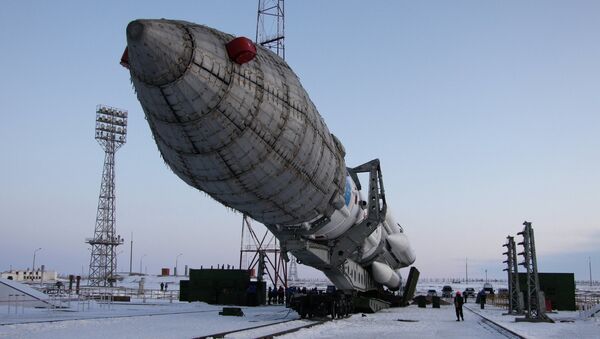MOSCOW, October 22 (RIA Novosti) - Russian Express-AM6 telecommunication satellite was put into calculated orbit after its launch on board the Proton-M carrier rocket from the Baikonur space center in Kazakhstan, a representative of Russia's Federal Space Agency Roscosmos told RIA Novosti Wednesday.
"The satellite detached from the Briz-M booster," the agency representative said, specifying that the satellite is now put into calculated orbit.
Based on the heavy-class Express-2000 platform, the spacecraft will have an active lifespan of 15 years and carry 11 antennas as well as 72 C-, Ku-, Ka- и L-band transponders, according to Russia’s Reshetnev Company, which designs and builds Express-series satellites.
The Express-AM6 telecommunications satellite will be operated by the Russian Satellite Communications Company (RSCC) to provide a comprehensive range of communications and broadcasting services in the Russian territory.
This is the second launch of the Proton-M carrier rocket since the major accident that took place in May 2014. Launched from Baikonur, the Proton-M rocket burned up in the atmosphere above China, leaving Russia without its most powerful telecommunications satellite. The investigation has concluded that the crash was caused by a failure of a turbo-pump bearing in the control engine of the rocket’s third stage.
The Proton-M is the largest carrier rocket in Russia’s fleet of space launch vehicles. Since its first launch in 2001, Proton has put dozens of Russian and foreign satellites into orbit.




